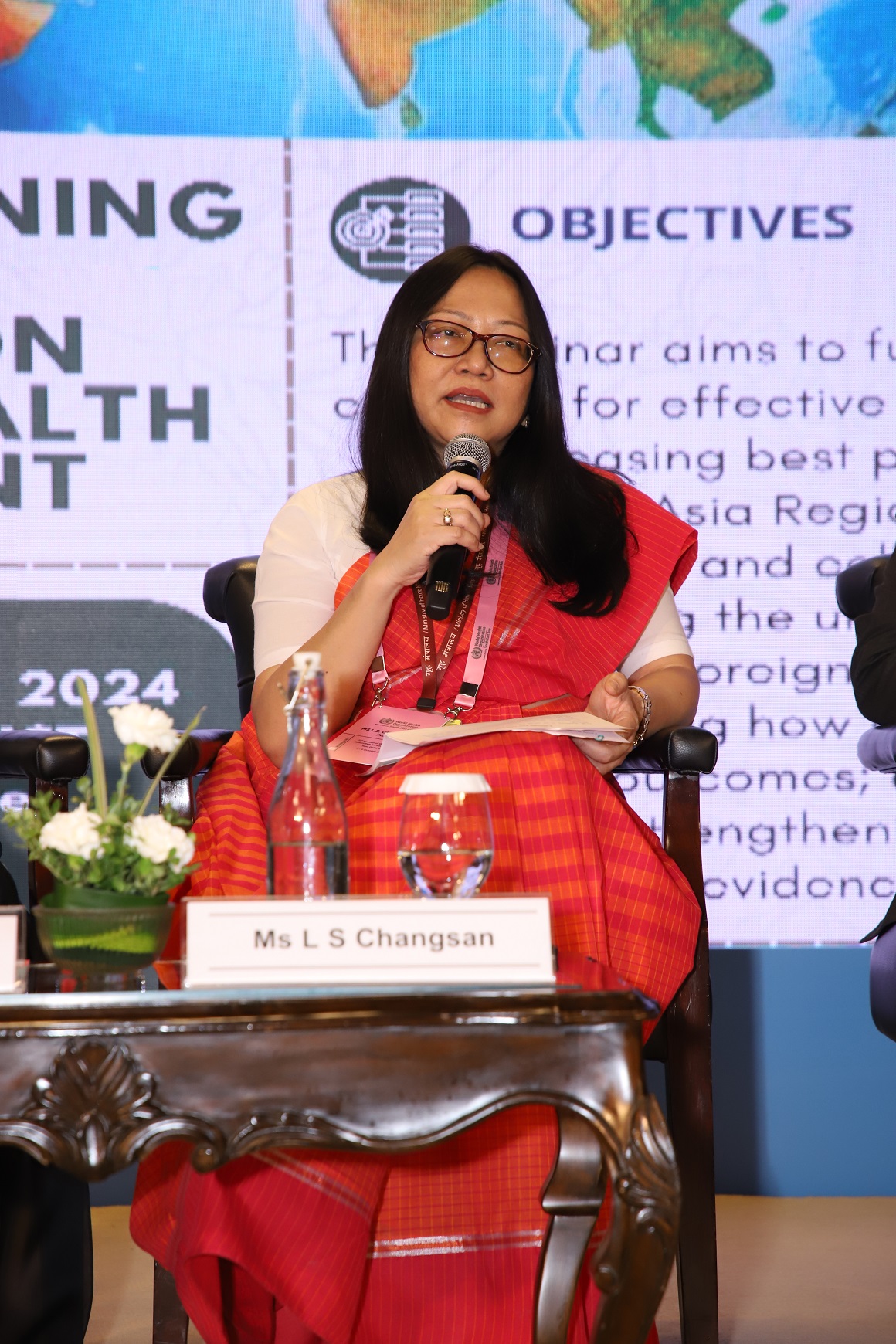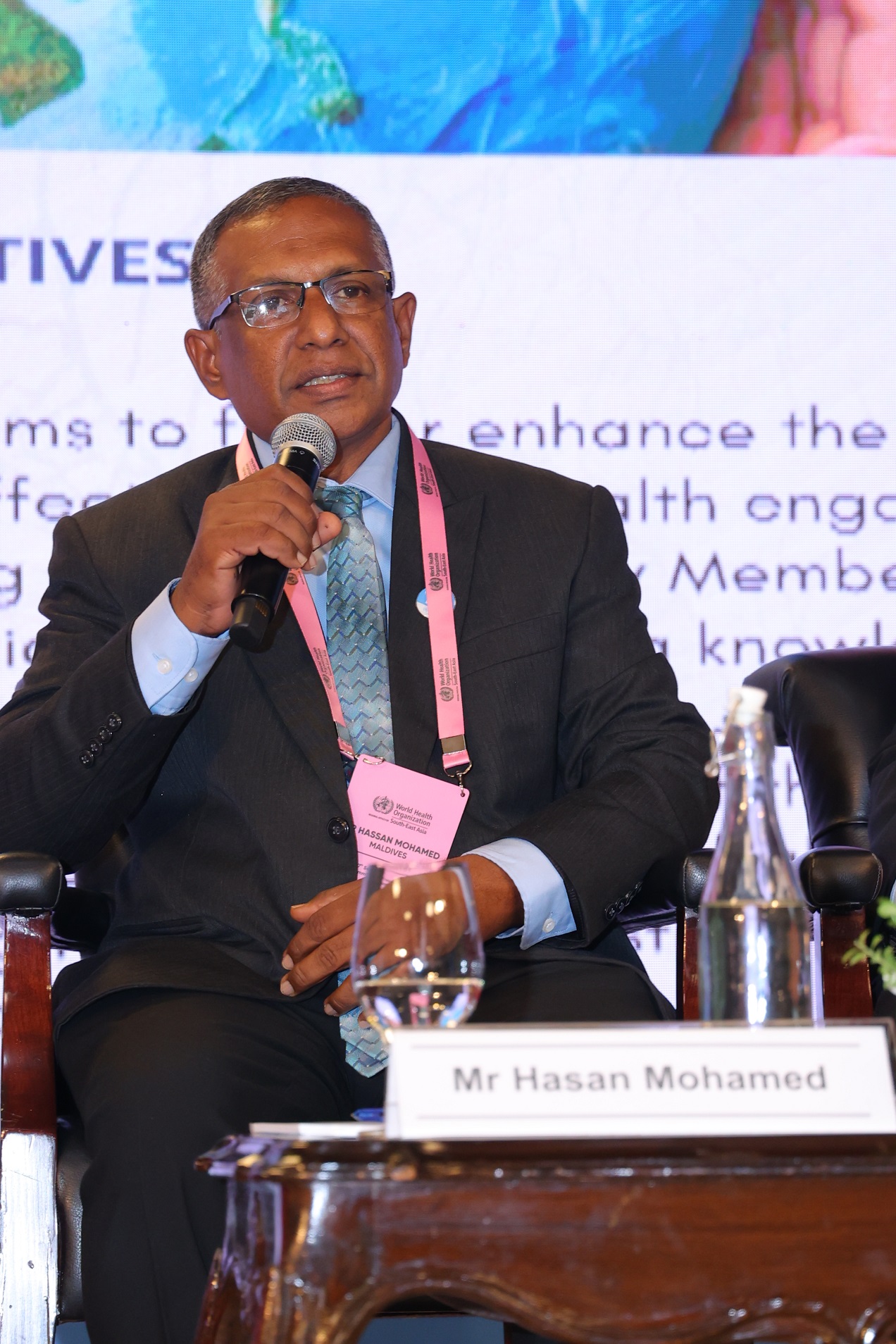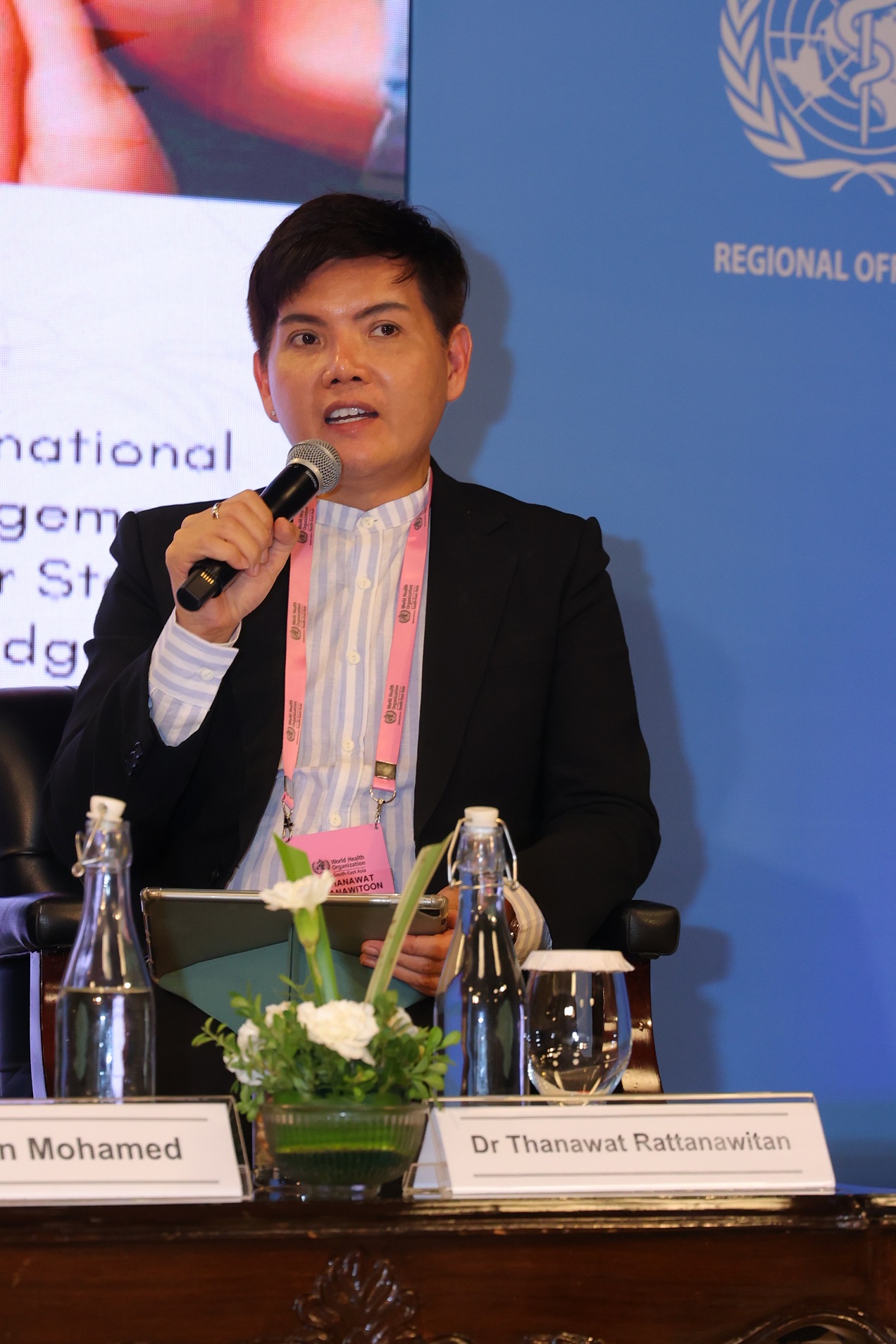On day two of the Seventy Seventh Regional Committee Session of WHO South-East Asia a Brown Bag seminar titled Strengthening National Capacity on Global Health Engagement brought together speakers from Member countries - Ms. L. S. Changsan, Additional Secretary, Ministry of Health and Family Welfare, Government of India, Mr. Hassan Mohamed, Deputy Director, Health Protection Agency, Ministry of Health, Government of the Republic of Maldives, and Dr. Thanawat Rattanawitoon, Public Health Technical Officer, Department of Disease Control, Royal Thai Government.
Ms. Changsan spoke about how India builds capacities in the health sector saying that in their multi-tier framework, capacity building – infrastructure, lab networks, and human resource development – are woven into the system through various programs. Historically community has been involved in health initiatives, including ensuring that in capacity building processes, communities are not just beneficiaries but participants. This includes Asha workers in the grassroots level who are trained and accredited to provide health services in their communities. The National Health Mission (NHM) is an umbrella scheme under which are capacity building programs to strengthen human resources of the health workforce. There is an online training platform for healthcare professionals, and over the years, new medical colleges and seats in existing medical colleges have consistently expanded, with additional focus on allied health professionals. Internationally, India is an active part of global health network, and on the forefront of exchanging technical expertise, sharing best practices, and learning from Member countries and others.

(Ms. L. S. Changsan, Additional Secretary, Ministry of Health and Family Welfare, Government of India, at the brown bag seminar on strengthening national capacity on global health engagement at RC77 New Delhi. Photo credit - WHO SEARO)
Mr. Mohamed spoke about the steps Maldives has taken to ensure women and youth’s participation in health sector engagement. In Maldives, as per all legal frameworks including relevant laws and the constitution, women and girls have equal opportunities. Traditionally in the health sector women constitute the majority including in leadership positions. Family Health Workers in the community level are almost all women, while so are Permanent Secretaries and Director Generals in health and other sectors. Youth is part of decision-making process in the country. A gender balanced Youth Advisory Group constituted by the President have no limit to their advisory role to the President, ministers, and any government offices, and are encouraged to give feedback and criticisms. There are programs by the youth ministry which are run by the youth, and Youth Reference Groups consisting of various groups including health advocates, are engaged in discussions and consultations. Majority of school students are girls, and so are majority of high academic achievers. To further engagement in health matters, training them and youth to be health ambassadors is the next step. 
(Mr. Hassan Mohamed, Deputy Director, Health Protection Agency, Ministry of Health, Government of the Republic of Maldives, at the brown bag seminar on strengthening national capacity on global health engagement at RC77 New Delhi. Photo credit: WHO SEARO)
Dr. Rattanawitoon said, recognizing the importance of strengthening capacities in health engagement, in 1998, an initiative was taken to train people on ways to engage in global health forums, draft agendas and interventions, facilitate attendance in global forums such as WHA, etc. For example, the young delegate who participated in the Ministerial Round Table of the second day of RC77 had to prepare ahead of time, write an intervention, and learned through the process. In Thailand younger delegates go through training and working with those who know the process. It is exposure and experiential learning that helps Thailand build capacity of those who engage in global health platforms. He recommended creating strategies on engaging different stakeholders to enhance their skills; in global health engagements, country representatives should have an understanding of issues; understand cultural sensitivities in national contexts; and make sure that any commitment made in global meetings are approved by the national authority. A systematic monitoring system to enhance capacity of younger generation need to exist, to enable them to effectively engage in the global level.

(Dr. Thanawat Rattanawitoon, Public Health Technical Officer, Department of Disease Control, Royal Thai Government, at the brown bag seminar on strengthening national capacity on global health engagement at RC77 New Delhi. Photo credit: WHO SEARO)
The brown bag seminar had keen participants, including youth delegates at the Regional Committee who were interested to learn on how to work towards becoming effective health diplomats and further their engagement in the global health arena.
